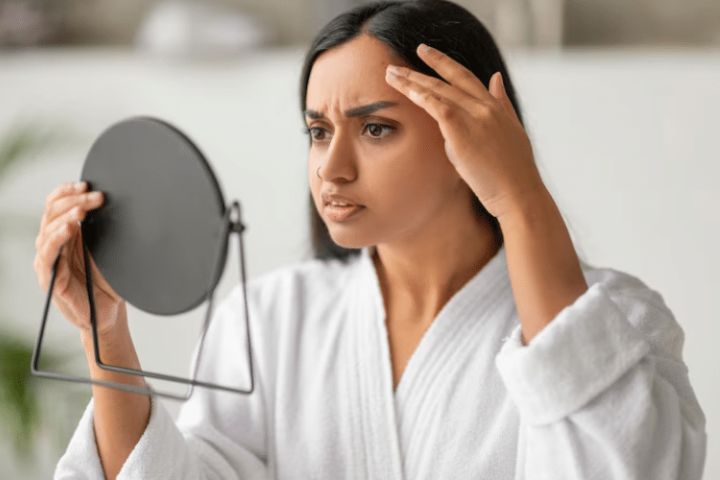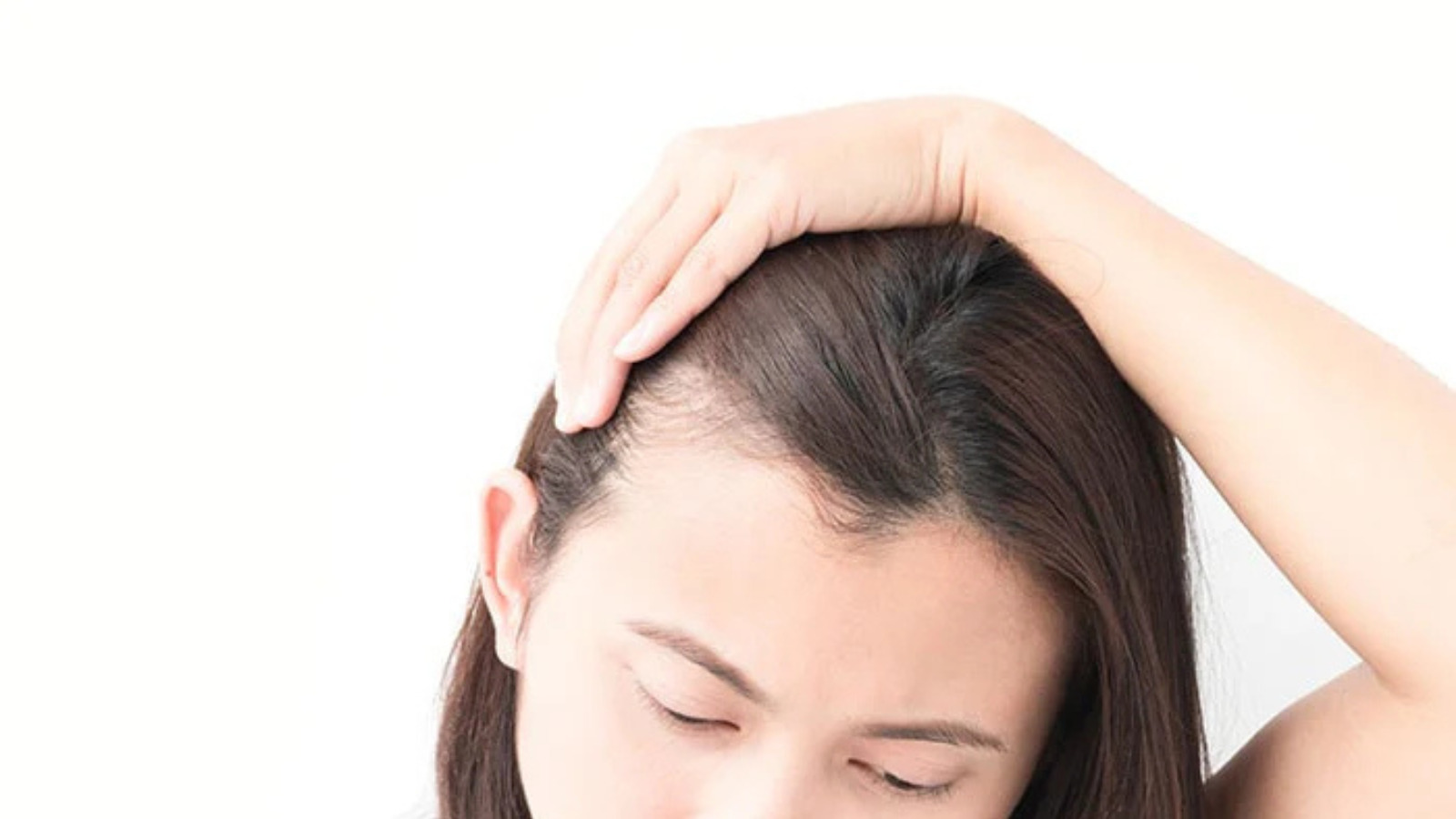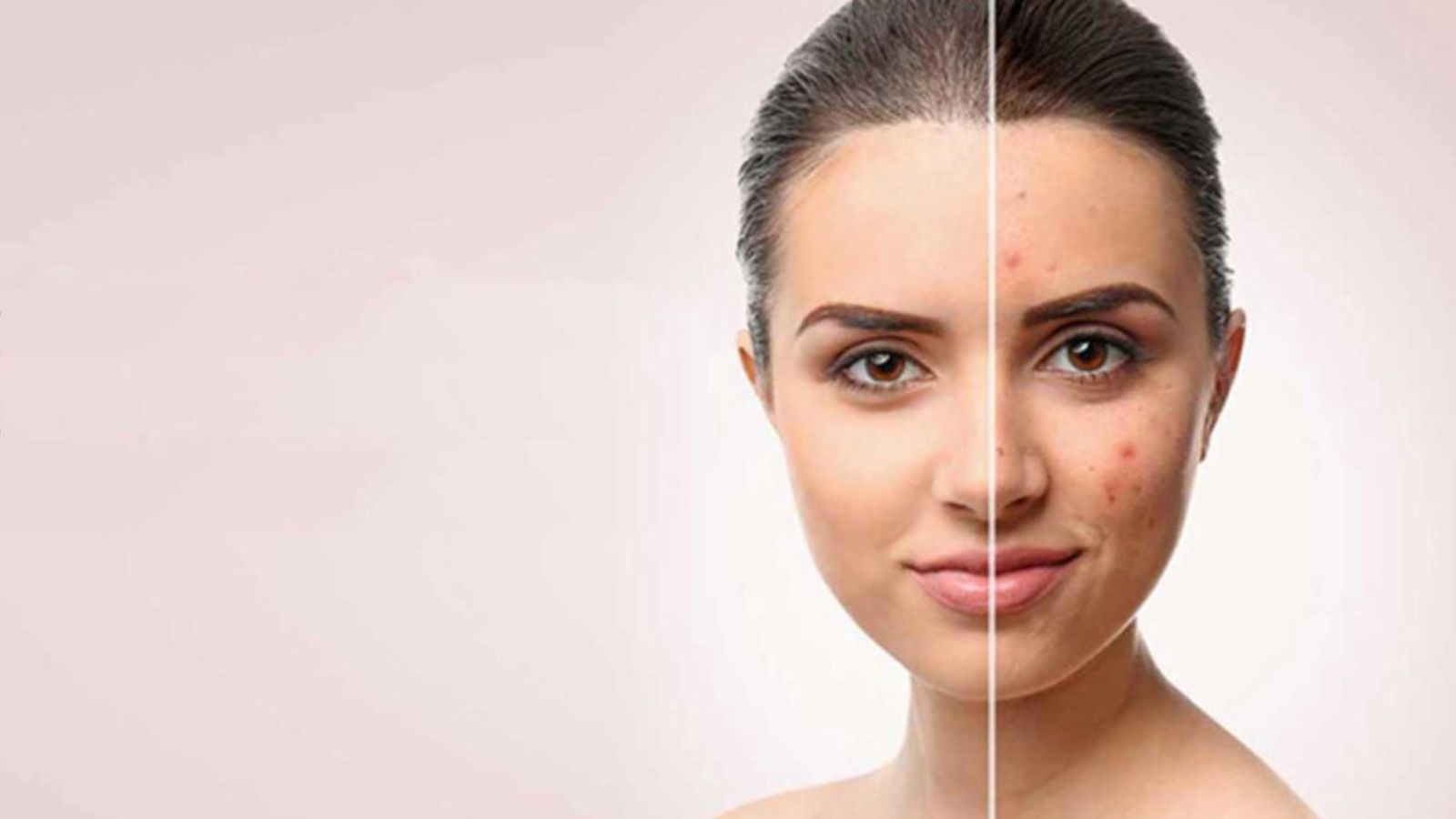Stress directly affects the health of the hair and skin. Prolonged stress can cause hair loss and dullness. Dermatologists agree that stress management is important for beauty.
When stress occurs The body produces cortisol, which weakens collagen and damages the skin. Hair follicles can also suffer. Leads to shedding and slow growth.
You can maintain the radiance of your skin and the strength of your hair by managing stress effectively. A proactive approach ensures the best long-term results for your appearance.
How Stress Affects Skin Health
1. Triggers Breakouts
Stress increases sebum production and clogs pores. This leads to acne, even in adults. Moreover, hormonal imbalances caused by stress significantly make this condition worse.
Additionally, stress weakens the skin’s barrier, which increases sensitivity. Consequently, this can trigger inflammation and redness. Over time, untreated stress may worsen existing skin issues, including acne.
2. Accelerates Ageing
High cortisol levels break down collagen and elastin. Consequently, this results in wrinkles, sagging, and a dull complexion. Moreover, stress also reduces the skin’s ability to repair itself.
Additionally, chronic stress decreases blood flow to the skin, limiting oxygen and nutrients. This, in turn, accelerates aging signs. Therefore, managing stress is crucial for maintaining a youthful glow.
3. Causes Inflammation
Stress can weaken the skin’s protective barrier, causing irritation and redness. As a result, this can worsen conditions like eczema, psoriasis, and rosacea.
Furthermore, stress triggers inflammation in the body, which can amplify these conditions. In addition, it impairs the skin’s natural healing process. Therefore, managing stress is key to preventing flare-ups.
Stress and Its Impact on Hair
1. Hair Loss
Stress can cause telogen effluvium, a condition that causes premature hair loss. Over time, this can lead to hair thinning and shedding.
2. Weakened Hair Quality
Stress impacts scalp health by limiting nutrients to the hair follicle. Under chronic stress, hair becomes brittle, dull, and potentially breaks off.
3. Slowed Growth
Stress alters the hair growth cycle. It prolongs the resting phase of follicles, resulting in slow regrowth and unequal thickness.
Dermatologist-Recommended Stress Management Tips
1. Practice Relaxation Techniques
Mindfulness, meditation, and deep breathing reduce cortisol levels. Just 10 minutes a day can improve your skin’s glow and promote healthy hair growth.
2. Maintain a Healthy Lifestyle
Stress is combated by proper dietary intake, water intake, and exercise. These activities help your body support and strengthen hair and skin vitality.
3. Prioritise Sleep
Stress frequently disrupts sleep, that’s vital for skin and hair repair. Aim for 7–eight hours of quality relaxation to rejuvenate your look.
A Balanced Mind for Radiant Skin and Hair
Managing stress is key to keeping your hair and skin healthy. When stress throws your body off balance, it can really show in your appearance.
By practicing relaxation methods and living a healthy lifestyle, you can reduce the impact of stress. Your skin will look more radiant, and your hair will become stronger.
Overall, taking small, steady steps to manage stress will provide long-lasting benefits. With guidance from professionals and commitment, you can both look and feel your best.



